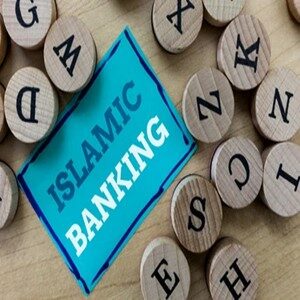 Back
Back
UK leads as Western Islamic Finance hub despite limited local uptake
By Vriti Gothi

The United Kingdom continues to hold its ground as the leading Western hub for Islamic finance, despite Islamic banking maintaining only a marginal share of the domestic market, according to Fitch Ratings. The country’s strength lies in its global connectivity, regulatory environment, and strong role in sukuk listings, underpinned by the London Stock Exchange (LSE).
The LSE remains the world’s largest listing venue for hard-currency sukuk, accounting for over 40% of global share as of H1 2025, Bloomberg data shows. It also ranks as the second-largest platform for hard-currency ESG sukuk after Frankfurt. In the first seven months of 2025 alone, Middle Eastern sukuk and bond issuers raised $65 billion on the LSE, second only to UK-based issuers. Nearly all sukuk listings in London originated from GCC countries, underscoring the city’s status as a global Islamic finance hub.
Competition, however, is intensifying. Rival exchanges, including Euronext Dublin, Frankfurt Stock Exchange and Nasdaq Dubai, are vying for sukuk listing leadership. Currently, Fitch rates around 80% of the hard-currency sukuk listed in London, with 85% investment grade and most issuers enjoying a Stable Outlook.
Beyond capital markets, the UK’s Islamic finance industry is supported by strong financial, professional and legal services, with English law widely used to govern international sukuk contracts. UK-based banks also play a central role as arrangers and counterparties in sukuk, Islamic interbank, and derivatives markets. The London Metal Exchange is accessed by many Islamic banks to facilitate cash financing.
Islamic funds remain the largest domestic contributor, with assets under management reaching $12.5 billion by mid-2025 a 22.1% year-on-year growth, according to IFN Investor data. Equities dominate the asset class (84%), followed by commodities (10%).
Islamic banking assets in the UK grew by 38% year-on-year to $11.4 billion at end-2024. The market welcomed a new entrant following Ahli United Bank (UK) PLC’s conversion to Kuwait Finance House PLC in 2024. Fitch currently rates two UK Islamic banks, both at ‘A’ with Stable Outlooks.
GCC investors remain major shareholders in UK Islamic banks, reinforcing government efforts to attract foreign direct investment. These banks primarily cater to GCC clients, offering products ranging from real estate finance and wealth management to digital banking services. Alongside them, the UK is home to more than 50 Islamic FinTechs, including a fully digital Islamic bank. Notable developments include Europe Arab Bank’s launch of Islamic banking services in May 2025 and FinTech firm Offa’s acquisition of Bank of Ireland’s Islamic home finance portfolio in late 2024.
IBSi FinTech Journal

- Most trusted FinTech journal since 1991
- Digital monthly issue
- 60+ pages of research, analysis, interviews, opinions, and rankings
- Global coverage






